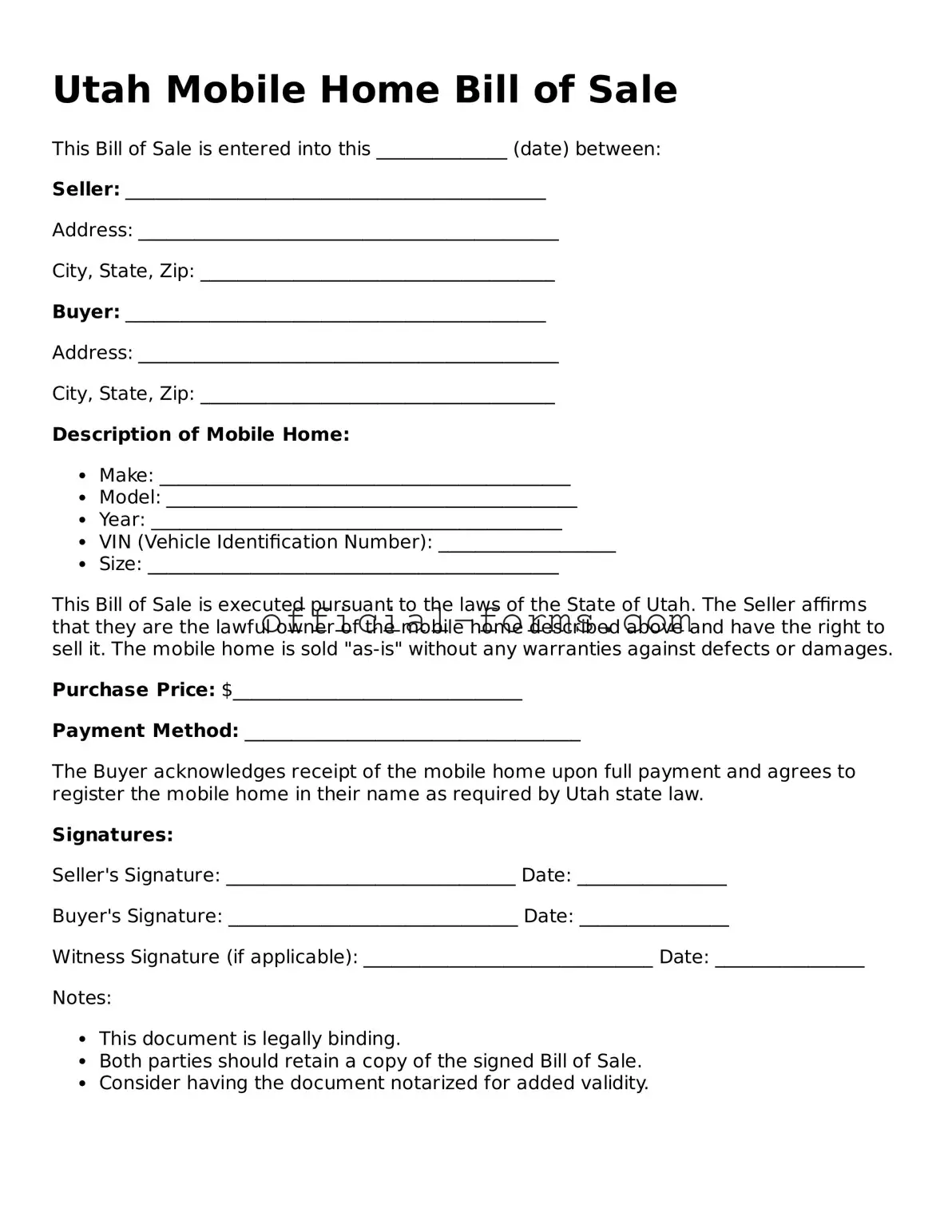When filling out the Utah Mobile Home Bill of Sale form, individuals often make several common mistakes that can lead to complications later on. One frequent error is failing to provide accurate information about the mobile home. This includes not listing the correct make, model, year, and Vehicle Identification Number (VIN). Missing or incorrect details can create confusion and may delay the transfer of ownership.
Another mistake is neglecting to include the sale price. The form requires a clear statement of the amount paid for the mobile home. Omitting this information can lead to issues with taxes and registration. Buyers and sellers should ensure that this figure is clearly stated to avoid misunderstandings.
People sometimes forget to sign the document. Both the seller and the buyer must provide their signatures to validate the transaction. Without these signatures, the Bill of Sale is not legally binding, and the sale could be disputed later.
Additionally, some individuals do not date the form. A date is crucial as it indicates when the transaction took place. This information is important for record-keeping and can affect the legality of the sale.
Another common oversight is not including the buyer's and seller's contact information. Clear communication is essential for both parties, especially if any issues arise after the sale. Including phone numbers and addresses can help facilitate follow-up if needed.
People may also fail to check for any liens on the mobile home. It is important to ensure that the mobile home is free of any debts or claims before completing the sale. Ignoring this step can lead to financial complications for the new owner.
Some individuals do not provide a proper description of the mobile home’s condition. A thorough description can help prevent disputes about the state of the home at the time of sale. Buyers should be aware of any existing damage or needed repairs.
Another mistake is not understanding the importance of notarization. While not always required, having the Bill of Sale notarized can provide an extra layer of protection for both parties. This step can help verify the identities of those involved in the transaction.
People sometimes overlook the need for additional documentation. Depending on the situation, it may be necessary to include other papers, such as a title transfer or proof of ownership. Failing to provide these documents can complicate the registration process.
Finally, many individuals do not keep a copy of the completed Bill of Sale. Retaining a copy is essential for both the buyer and seller. This document serves as proof of the transaction and may be needed for future reference, especially for tax purposes or in case of disputes.

